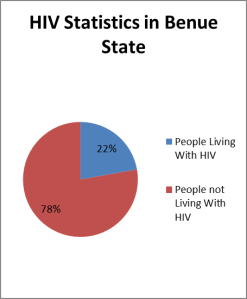By Sonnie Ekwowusi
What is happening to Imo State Governor Owelle Rochas Okorocha at the moment over the legalization of abortion in Imo State readily attests that in constitutional democracy the government ought to be responsible to the people and not to its own whims and caprices. Abortion was legalized in Imo State through the backdoor without the knowledge and consent of the citizens of Imo State. Initially when confronted with this fact, Governor Okorocha flatly denied it, but after a long cross-examination, he eventually admitted the fact and quickly pleaded for forgiveness. I gather that he has requested the Imo State House of Assembly to repeal the offensive law. I hope that the Imo State citizens would follow up to ensure that the law is truly and really repealed.
But aside from Imo state, abortion, unknown to many, has equally been legalized in Anambra State under the deceptive euphemism. “Anambra State Women’s Reproductive Rights Law 2005”. The law came into force on 17th March, 2005 when Dr. Chris Ngige was the Governor of Anambra State and Professor Brian Adinma was the commissioner for Health, Anambra State.
The Anambra “Women’s Reproductive Rights Law” is a 12-paragraph piece of legislation. Deceptively enough, the word, abortion is not specifically mentioned in the law. That is understandable. Because the word: abortion is repugnant in Nigeria socio-cultural and religious setting: because previous attempts to legalize abortion in Nigeria had been met with stiff opposition, UNFPA and other pro-abortion United Nations Agencies in Africa have been employing euphemisms and dodgy words in marketing abortion in Africa. For those still wondering whether the phrase “Women’s Reproductive Right” is another name for abortion, I attended the Reproductive Right Summit in Abuja in 2003. In fact it was at that Summit that I first understood the real meaning of the phrase: “Women’s Reproductive Right”. At the lobby of the of the Ladi Kwali Conference Centre, Sheraton Hotel, Abuja, venue of the Summit, the Summit organizers displayed all sorts of abortificients and literature on permanent sterilization Vasectomy, female sterilization (Tubal Ligation), injectable contraceptives, IUCD, postinor2,Lo-femenal, norplant, suction tubes etc. Later, the organisers of the said Summit told journalists in attendance that the best tactics of promoting abortion in the media is to employ euphemisms and deceptive languages in reporting abortion so that it could easily be sold to the unwary public.
Three years after the said Summit, Senator Daisy Ehanire-Danjuma (then representing Edo-South at the Senate) sponsored an Abortion Bill at the National Assembly under the euphemism: National Institute of Reproductive Health bill 2006. I was one of the lawyers who faulted the bill at the Senate Public Hearing on the ground that even though the word: abortion was not specifically mentioned in the bill, it was nevertheless an abortion law per excellence. At the end of the Hearing, the National Assembly Health Committee heeded our argument and dismissed Danjuma’s Reproductive Health bill for lack of merit and for being incompatible with Nigeria law, public morality and public interest.
But as I said earlier, the Anambra State abortion law came into force on 17th March, 2005. Dr. Chris Ngige was the Governor of Anambra State and Professor Brian Adinma, the Anambra commissioner for Health respectively at that time. Prior to passing of the law by the Anambra State House of Assembly and signing of same by Dr. Ngige, the people of Anambra State were never consulted let alone invited to debate the Bill on it. If democracy is still government of the people by the people and for the people, the Anambra stakeholders should have been consulted at the time of the Anambra abortion law was being hatched more so when the law affects destiny of the Anambra people. Therefore for lacking in popular participation required in a democracy, and for being unconstitutional and incompatible with public policy, public morality and public interest, the Anambra State Women’s Reproductive Rights Law 2005” should be abrogated.
The most offensive section of the “Anambra Women’s Reproductive Rights Law” law is section 6(a) which states: “The view of the woman shall be taken into consideration for decisions: On the number, timing and spacing of the children…
To the uninformed, said section 6 (a) of the law might appear laudable, but to those familiar with the reproductive rights or sexual reproductive rights politics., section 6 (a) has consistently been interpreted in many countries and places as giving women right to abortion and contraceptives. In fact section 6(a) was first articulated as an abortion right by the controversial proclamation on Human Rights in Teheran in 1968. In 1948 when all nations met and adopted the Universal Declaration of Human Rights (UDHR) abortion was not accepted as a universal human right. (The UDHR is the first and only universal human rights document that has the backing of all the nations). Even there is no mention of reproductive rights in the UDHR. Reproductive rights began to appear as a subset of human rights in the controversial 1968 Proclamation of Teheran, which states: “Parents have a basic human right to determine freely and responsibly the number and the spacing of their children”. But in the book, Resource Guide to the UN Consensus Language on Family Issues, compiled and edited by Susan Roylance, Greg S. Slater writes that the United Nations consensus language clearly limits abortions rights.





